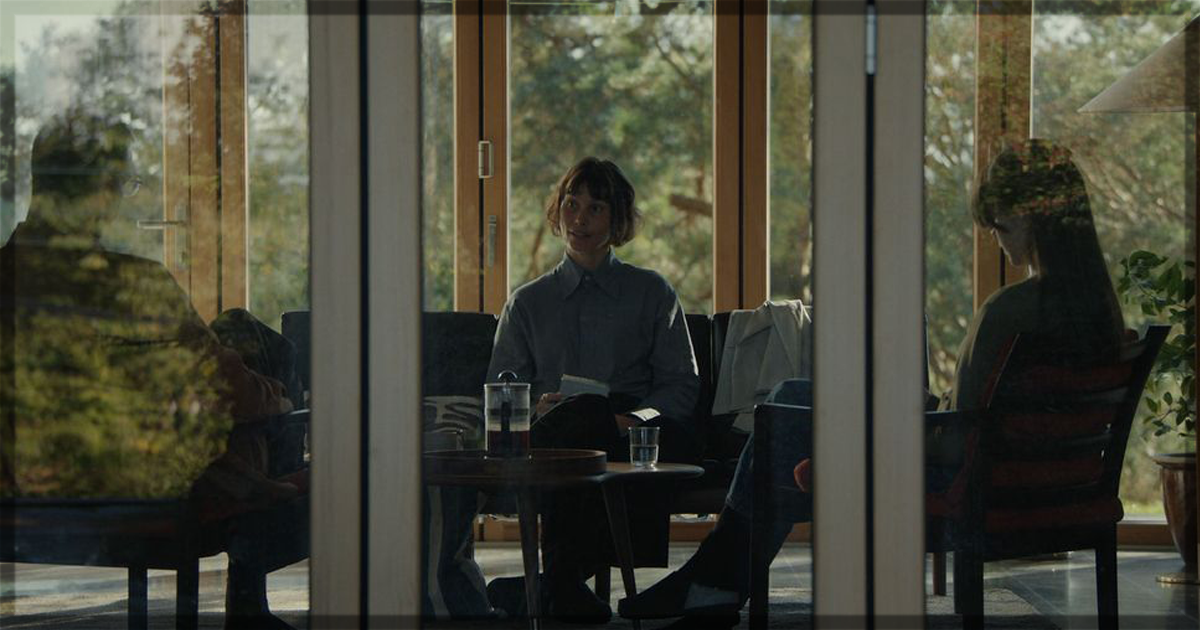2025 is slowly turning into a banner year for Norwegian cinema, not least because of the Grand Prix acclaim of Joachim Trier’s Sentimental Value, already touted as one of “The 100 Best Movies of the 2020s (So Far),” at this year’s Cannes Film Festival. Not long prior to that, Nina Knag’s debut feature Don’t Call Me Mama, with a central performance by Pia Tjelta described as “next-level stuff,” also snagged the attention of world cinema pundits following its world premiere at the 59th Karlovy Vary International Film Festival in July. Janicke Askevold’s Golden Leopard contender Solomamma, a rousing comedy-drama centered on single motherhood, is likely to pick up that forward momentum. A follow-up to the Norwegian director’s first feature Together Alone (2021), the Locarno title concerns Edith, played by Force Majeure star Lisa Loven Kongsli, whose fragile life is upended after discovering the real identity of her four-year-old son’s anonymous sperm donor, which forces her to wrestle with the thorny areas of starting one’s family outside normative methods.
The movie begins somewhere near its end via a tightly framed back shot depicting a short-haired woman seemingly awaiting her date or prepping for an interview, while a disembodied voice of a man talking to an unborn child plays in the background. This meet-up turns out to be the most significant juncture in the film. The woman whose face we cannot see is Edith, an investigative reporter and solo parent in her forties, who has been happily raising her son for about five years. Her son, Sigurd, is smart and kind of an old soul and has his own quirks. One day, when Edith fetches Sigurd from nursery school and another child probes why the boy’s father has never come to pick him up, she grows more curious and perhaps a little worried. What if her child starts to ask the same question? What happens if she actually meets her son’s sperm donor, only known to her by an alias? Will a diaristic information about how the man sees himself suffice?
Such curiosities become more heightened as her friends entertain the topic and, most crucially, when Trine (Trude-Sofie Olavsrud Anthonsen), whose first pregnancy became possible through the help of the same anonymous donor, reveals that the semen donation is courtesy of Niels Krohn, played by the disarmingly hot Herbert Nordrum, most notable for Trier’s stylistically inventive drama The Worst Person in the World (2021). Niels is a popular game developer with a controversial past. He’s rich, good-looking, and tall. He’s also married and is a stepdad to two children. Chief of all, he only resides nearby.
Soon, Edith becomes obsessed with replaying an audio recording in which “Inuus,” Niels’s alias, sits down with a psychologist, trying to learn if he displays signs of medical conditions that her son might inherit, all the while using her investigative prowess to uncover the man’s enigma. Pretending that she’s working on a gaming success story, she makes the first move and sets up an interview with him. What begins as a curious impulse eventually shapeshifts into an unlikely romance buoyed by an elaborate set of lies, ethics and guilt be damned. Edith is drawn to Neils not only because she wants to understand her son better and protect him from possible sources of pain, but because she also wants to understand herself and the sense of agency that she believes informs her day-to-day decisions.
Going down this road, though, will most likely crater Edith’s life that’s already fissured to begin with, especially as she reckons with her mother’s deteriorating health and memory. And indeed, as the story unfolds, it does. Working with cinematographer Torjus Thesen, Askevold insists on a kind of neurotic camera staging, coupled with a tense and propulsive score, to parallel the incessant anxiety and skepticism that gnaws at her protagonist. The film lets us access Edith’s frantic internal state every time the camera slowly tightens into a close-up.
At the same time, the suffocating panic is reflected in the script, penned by Askevold alongside Jørgen Færøy Flasnes and Mads Stegger, which locates the protagonist’s doubt and discomfort in the patronizing attitude of the people around her, friends included, regarding her choice to be a single parent — a choice often put neatly, and condescendingly, as “brave.” Kongsli is compellingly radiant in the lead role, expertly internalizing a life slowly unraveling at the seams. Her solo moment during Edith’s final meet-up with Niels in the last stretch, in which she’s trying to contemplate the lengths she’s taken in search of clarity, only to realize that she never needed to conform to normative pressures, is undeniably bittersweet and powerful. Beyond this, Kongsli and Nordrum are strongly effective as an onscreen pair, infusing their scenes together with a curious blend of pent-up desire minus the sex, humor, and awkward distance.
In a narrative that could prove stale and stagnant without a clear sense of insight, Askevold handles all the vexing questions she cracks open and makes her protagonist inspect and fret over in a manner that is quite gentle yet deft, shrewd. In a curious respect, Solomamma is essentially a coming of age movie about someone who’s just beginning to familiarize herself with the complexities of maternal care and empathy. Edith extends herself grace just as she lets her son have a real say in forming a relationship with his biological father. The movie insists on a kind of world that rejects the bioessentialist notion of a family and embraces alternative possibilities of kinship and belonging, free from patriarchal defaults. It intimates a topic that you’d reckon cinema would have totally drained by now, but it fascinatingly argues otherwise.
Solomamma recently played at the Locarno Film Festival.
Learn more about the film at the Locarno site for the title.
You might also like…
‘Dry Leaf’ Film Review: Alexandre Koberidze’s Gorgeously Fierce Neo-Noir Odyssey


